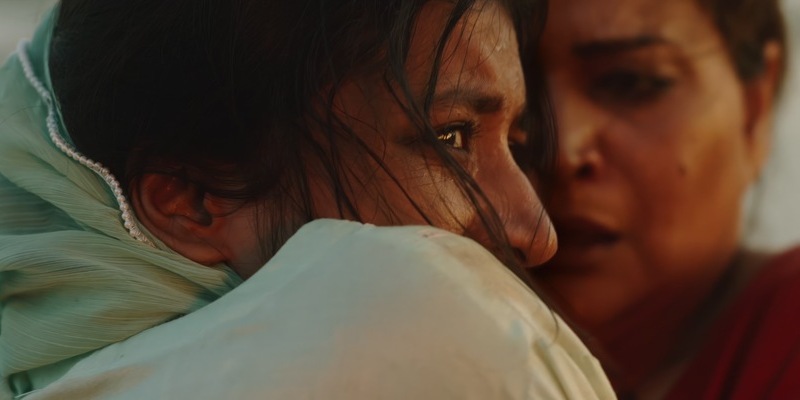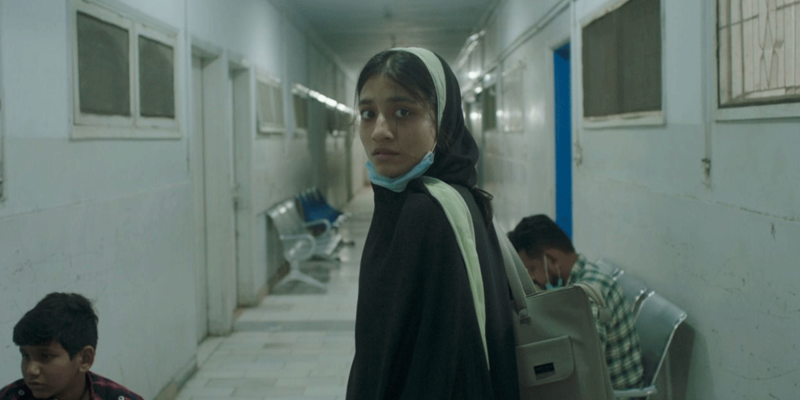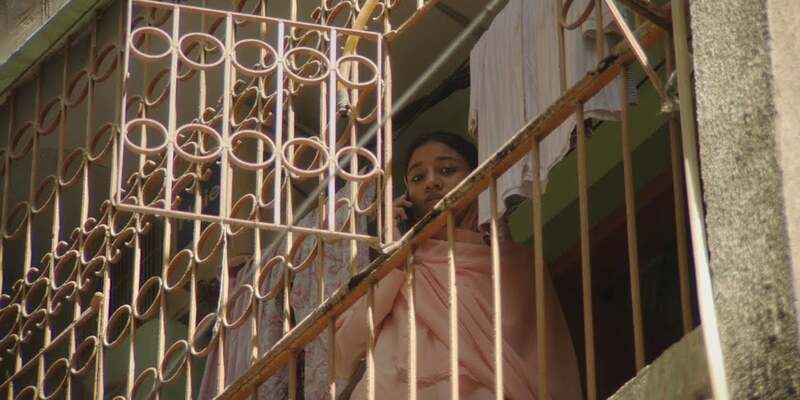
A mother and daughter are menaced by figures from their past following
the death of their family's patriarch.
Review by
Benjamin Poole
Directed by: Zarrar Kahn
Starring: Ramesha Nawal, Omar Javaid, Bakhtawar Mazhar, Adnan Shah Tipu

Over the last decade, Pakistan has accommodated a yearly series of
rallies called the Aurat which focus on the rights of women in the
country and make "demands for safety from endemic violence, accessible health care in a
nation where nearly half of women are malnourished, and the basic
economic justice of safe working environments and equal opportunities
for women." Not too much to ask, you'd assume, yet in 2014 a gender gap report
from the
World Economic Forum
ranked Pakistan 141 out of 142 countries, observing that women have less
power than men and are excluded from decision making positions, which
would delineate an urgent need for civic action. Post-Taliban, the
situation has degenerated further, with girls restricted from accessing
education, along with the abiding culture of honour killings. So, as it
always is, however bad the situation may be, it is that much worse for
young females (n.b., the age of consent in the country is irrelevant if
the couple
are married). It is only in the last three years that there has been an
Anti-Rape Act
in Pakistan.

Writing from a position of obscene ignorance, the above is a
condensation of my morning's research enacted to contextualise
Zarrar Kahn's stunning debut In Flames. A crucial film, because, as vital as research is, with its dry
aggregation of data and dates, information alone can be reassuringly
separate; an objective summary of something which is happening
elsewhere; so easy to compartmentalise. Narrative, which engages on an
emotional and subjective level, does not let us off the hook so easily.
Following a pointed shot of a hand tied flag for the leftist Pakistan
People's Party (I think, at least... but the emblem certainly denotes
ideological purpose), In Flames opens at an Islamic
funeral, where mum Fariha (Bakhtawar Mazhar), late teen daughter
Mariam (Ramesha Nawaland) and little brother Bilal (Jibran Khan) mourn the death of their husband/father. Played in flashback by
Vajdaan Shah, the character is not given the status of a name:
perhaps because his position as patriarch is what prevailingly counts,
and such presupposed largesse means that he could be any man, really.
With the male head of the house gone, the family are left in a penumbra
of insecurity; financial and otherwise.
Kahn homes in on Mariam as she negotiates this new and uncertain phase,
which essentially entails avoiding the unwanted and invasive attentions
of the men and boys who have the run of the city. A thug smashes the
window of Mariam's car to grab at her, some big man attempts to shame
the girl for being outside ("Our women don't walk the streets") and then
later, having a platonic conversation with male companion Asad (Omar Javaid), an old man separates the two, maintaining that "this is not a
Bollywood film." The oppression is consolidated by the Catch 22 of
Fariha: Mariam is unable to inform her or the authorities of such
episodes, as this would result in the over-protective mother containing
her daughter even further. As bright yet beleaguered Mariam, Nawaland is
superb in an immensely likeable performance, and appreciation also goes
to costumer Zainab Masood, too, for Mariam's gorgeous array of
saris (the art direction often colour codes via clothes, with green
being a particularly resonant shade).

At this point, the horror, social as it may be, is manifest in
In Flames and produces a destabilising atmosphere of
threat and unpredictability. Further to this however, glimpsed in a
camera pan or at the corner of a frame, is the ghost of Mariam's father,
who seems to be haunting her, spookily presenting in her most private
moments: her bedroom, her (vivid, impressionistic) dreams, or when she
is visiting a spiritual healer. DoP Aigul Nurbulatova utilises
tight shots and frames action with shelving, windows and close walls,
engendering a restricted context. When the camera opens up to depict
panoramas of mountains, deserts and a sapphire ocean where fleets of
fishing boats bob as Asad takes Mariam on a trip, the effect is one of
oxygenated reprieve.
Unfortunately for Mariam and poor old Asad (a crucial aspect of
In Flames as he affirms that not every man is or needs to
be a tyrant), there is no escaping the curse. A reference point is
It Follows
(right down to the creepy beach house, in fact), as during
In Flames' (they also share initials - yikes!) running time the threat
substantiates in different personas: her father, a man masturbating
outside her window, and even Asad himself. However, whereas in 2014's
(!) film the terror was born of sexual anxiety, here the threat is
developed to be an imperious reification of the patriarchy itself, which
has been inaugurated by Mariam's sense of shame.

Another comparison could be Rosemary's Baby, which, like In Flames, is a film where ‘horror’ is just at the edge of the narrative,
imbuing the human drama with the emotive and archetypal propulsion of
genre storytelling (the Castavets there, Mariam's wrong-un uncle here:
common-or-garden human evil). The film shares Ira Levin's paranoia and
depiction of an assailable woman, and also uses this narrative to
propose a critical disequilibrium. It is heartening to see horror used
for what it should be in In Flames: a challenge to accepted norms and hegemony. Of course, you cannot
give a film a starred rating just because you agree with what it is
saying, so it is just as well that alongside its thoughtful and
important polemic, In Flames is a consistently surprising,
frightening and deeply entertaining horror film, too.

In Flames is on UK/ROI VOD now.

